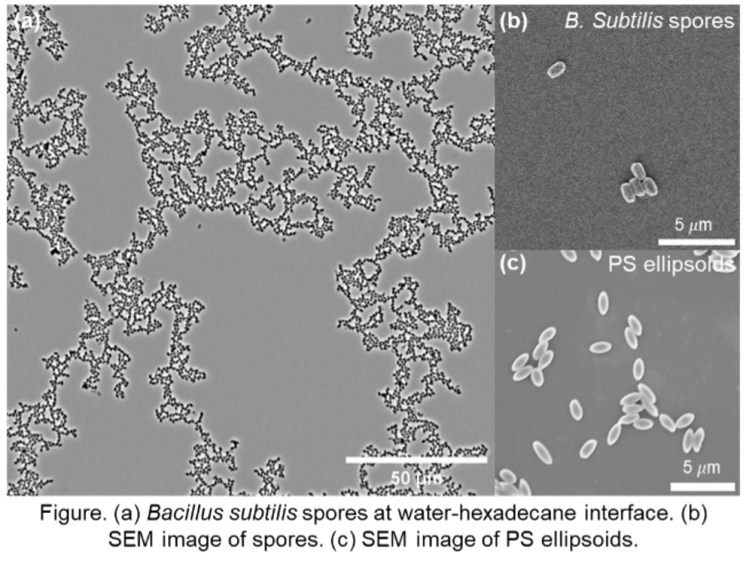Can we consider spores as ellipsoid polystyrene particles? – Characterization of ellipsoid polystyrene particles

This research focuses on understanding the colloidal behaviour of bacterial spores through diverse characterization techniques. Your work will focus on characterizing ellipsoid polystyrene particles instead of Bacillus subtilis spores. The same characterization experiments had already been conducted on Bacillus subtilis spores, providing valuable experience with the required procedures.
Why is this interesting?
Spores, resilient dormant cells with size and shape akin to colloidal particles, hold promise as unique natural particles. Their ability to endure harsh environments offering exceptional tolerance for various manufacturing processes. Compared to traditional colloidal particles, spores can become active cells in favorable conditions, introducing dynamism to the system. While bacterial spores have found applications in biotechnology, their potential in constructing living materials has only been explored through embedding spores as additives—not as foundational building blocks. We aim to fill this gap by investigating the feasibility of harnessing Bacillus subtilis spores as building blocks for living materials. A key question is whether bacterial spores can be treated as traditional passive particles, and to what extent.
We are looking for a motivated MSc student for a project or thesis, interested in learning characterization techniques for particles and their behaviour at interfaces.
Core responsibilities include:
• Zeta potential measurement
• Turbiscan measurement
• Microscopy
• Contact angle measurement at the oil-water interface
• Self-assembly at the oil-water interface and image analysis
• Measuring the hardness of Bacillus subtilis spores using Atomic Force Microscopy (based on time availability)
Completing all the tasks above is not necessary. This project will provide you hands-on experience with essential particle characterization techniques. You will have the opportunity to start immediately or upon agreement.
Interested? Feel free to contact Yiyao Hu at for more details.